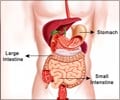Tracking influenza vaccination of healthcare personnel through an automated system increased vaccination compliance, says a new research.

"Mandatory vaccination programs help protect vulnerable patients, but can be tremendously time and resource dependent," said Susan Huang, MD, MPH, an author of the study. "By successfully automating a system to track and provide feedback to healthcare personnel who have not received their seasonal flu vaccine, we are providing safer places for care and reducing the administrative burden of our mandatory vaccination program."
Researchers in the Epidemiology and Infection Prevention Program at the University of California Irvine Health System developed an automated system to track vaccination status of staff under the hospital's policy. This system is designed to send automated reminders to workers and supervisors at regular intervals prior to the required deadline. Supervisors and department chairs could also access the vaccine status of those reporting to them through the intranet site.
The system reduced the annual implementation burden of the mandatory vaccination program. Of the nearly 7,000 individuals included in the policy, automated reminders and tracking accounted for more than 98 percent of compliance among healthcare personnel. Only 130 individuals required a manual written warning and five employees were counseled and removed from work schedules until they participated.
The automated system reduced the number of overtime hours required by dedicated occupational health personnel for work on the influenza vaccination program by 56 percent from the 2010-2011 to 2013-2014 seasons, as the oversight largely shifted the responsibility of adherence to the individual employee and their direct supervisors.
"Automation of necessary, but rote activities can allow medical facilities to implement mandatory flu vaccination and better protect patients without excessive diversion of skilled labor and resources from other important infection prevention activities," said Huang.
Advertisement
Source-Eurekalert









